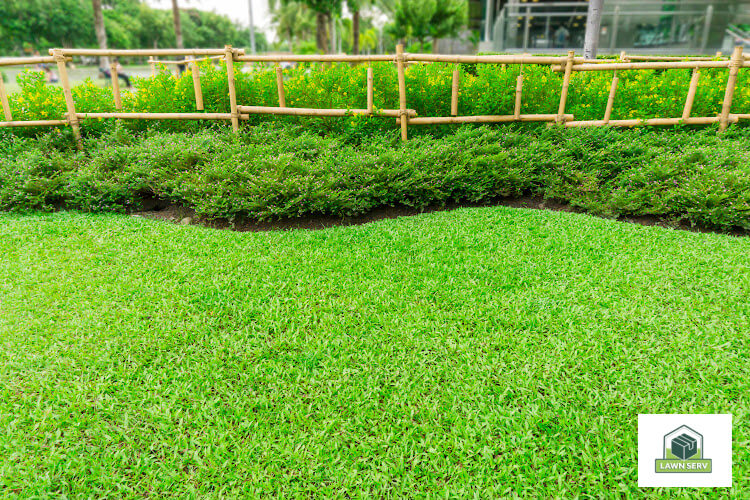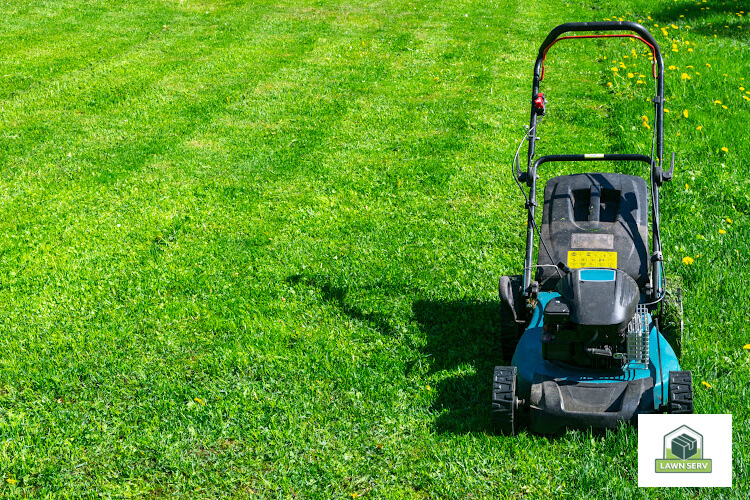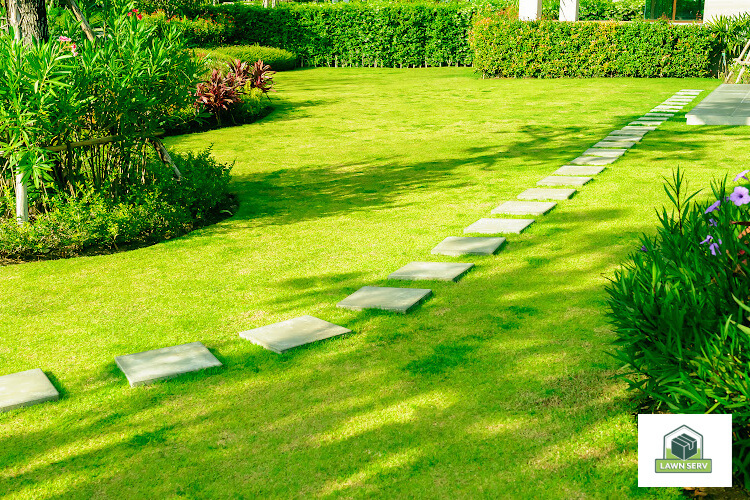
DIY Weed Removal can seem like a daunting task, especially when your lawn is overrun with unwanted plants.
The truth is, you don't need to rely on harsh chemicals or expensive services for weed control.
You can create a powerful, natural weed-removal solution right from the items in your pantry. With just vinegar, salt and dish soap, you can create a potent homemade weed killer that's both safe and eco-friendly.
Ready to reclaim your garden? Let's dive into the world of DIY Weed Removal.
Table of Contents
- The DIY Approach to Weed Management
- The Role of Salt and Dish Soap in Homemade Weed Killers
- Creating Your Own Homemade Weed Killer Recipe
- Application Tips for Maximum Effectiveness
- Exploring Other Natural Weed Control Methods
- Commercial Herbicides and Their Environmental Impact
- FAQs in Relation to Diy Weed Removal
- Other Weeds and Plants You Need to Remove from Your Lawn
The DIY Approach to Weed Management

Confronting the challenge of weed management can seem intimidating, but armed with the right knowledge and tools, you're more than capable of reclaiming your lawn. A popular DIY weed control method leverages common household items like vinegar as a potent weapon against these unwelcome invaders.
Vinegar: The Powerhouse Ingredient in Your Homemade Weed Killer
Vinegar's potency as an effective homemade solution for managing weeds stems from its high acetic acid concentration, which acts as a desiccant. This means it has the ability to pull moisture out of leaves, causing them to dry up and die off - making this simple ingredient quite lethal for pesky garden pests.
Distilled white vinegar is often chosen due to its wide availability and affordability. However, some resilient weeds may call for stronger solutions, such as 45% pure vinegar.
Besides being efficient at killing unwanted plants, using vinegar also helps maintain a healthy lawn by minimizing chemical usage that could potentially harm beneficial insects or negatively alter soil pH levels.
Moving Forward With Natural Solutions
Taking strides towards achieving an enviable green space free from intrusive growths requires understanding not just what works but how they work together effectively. Next on our agenda is exploring how everyday substances like table salt and dish soap enhance this homebrewed concoction's efficacy against stubborn weeds. Stay tuned.
The Role of Salt and Dish Soap in Homemade Weed Killers
With the worries regarding the consequences of store-bought herbicides on our planet, many people are now looking to DIY techniques for weed management. Two critical components that enhance these homemade remedies are table salt and dish soap.
Sodium Chloride: A Natural Desiccant
In your battle against garden weeds, sodium chloride or common table salt proves to be a potent ally. It works by disrupting the water balance within plant cells when applied directly onto leaves or root systems. This imbalance causes plants to dehydrate, ultimately leading to their demise.
This is particularly useful against stubborn varieties that are resistant even to vinegar-based treatments, making this everyday ingredient indispensable in homemade weed killers.
Dish Soap: Enhancing Spread & Absorption
In addition to helping with household chores, dish soap also plays a crucial role in increasing the effectiveness of your homemade weed killer mixtures. By acting as a surfactant—a substance that reduces surface tension—it ensures better coverage on leaves and improves absorption into plant tissues. This allows for maximum exposure to other active ingredients such as vinegar and salt.
- Aids dispersion over larger areas due to lessened surface tension,
- Fosters increased penetration through waxy/hairy leaf barriers that often repel liquid applications,
In essence, incorporating dish soap helps you tackle those hard-to-reach nooks where stubborn weeds tend to hide out.
Moving Forward:
Now, let's explore the process of creating this potent homemade solution using easily accessible items. We'll delve into the details of how each component, table salt and dish soap, plays a crucial role in crafting an effective mixture to combat those bothersome intruders.
Creating Your Own Homemade Weed Killer Recipe

Managing unwanted plants in your yard can be achieved with a homemade weed killer recipe. The key ingredients for this are distilled white vinegar, table salt, and dish soap. These inexpensive items are readily available and make for an economical solution.
To begin the process of making your own weed control solution, combine one gallon of vinegar with a cup of salt. This mixture forms an effective weapon against various types of weeds due to its high concentration levels. However, caution is advised when using it as excessive amounts could potentially harm soil health.
The next step involves adding one tablespoon of dish soap into the concoction you've created so far. Acting as a surfactant, the dish soap enhances even distribution across leaves, thereby maximizing absorption rates.
Your DIY spray bottle-ready homemade weed killer should then be applied directly onto any pesky weeds while avoiding desired grasses or plants that might get caught in overspray incidents.
Safety Precautions When Mixing Ingredients
Mixing these potent substances together requires some safety measures to avoid potential risks associated with their combined strength. Always wear gloves during handling processes, especially when dealing with pure vinegar, which may cause skin irritation if mishandled. Also, ensure proper ventilation throughout mixing procedures because inhaling concentrated mixtures could lead to respiratory discomforts.
In our upcoming section, we will delve deeper into how to best apply this natural remedy for optimal results - stay tuned.
Application Tips for Maximum Effectiveness
The success of your homemade weed killer depends on several factors, including the timing and technique of application. Understanding these can greatly improve its effectiveness.
1. Timing Your Application
A sunny day is an ideal time to apply your DIY solution as it enhances the vinegar's desiccating effect, leading to faster results. The heat from the sun accelerates this process, making weeds wither more quickly.
However, please be aware that this combination does not distinguish between plants - it will damage any vegetation it touches due to its non-selective nature. Therefore, exercise caution to avoid killing grass or nearby plants that you want to keep intact.
2. Perfecting Your Spray Technique
Your spraying method also significantly impacts how well your homemade weed killer works in practice. Target unwanted weeds directly while avoiding overspray onto desirable flora around them helps ensure maximum impact where needed most without collateral damage. For maximum effectiveness, consider utilizing specific techniques when applying your homemade weed killer.
If you're using a garden sprayer to tackle large areas infested with weeds, it's advisable to adjust the pressure to a lower setting if possible. This will help minimize misting and provide you with better control over where your spray lands.
3. Post-Application Care
- To give enough time for salt and vinegar penetration deep into plant tissues, causing irreversible damage, avoid watering those areas for at least 24 hours after applying your homemade weed killer solution.
In our next section, we'll explore additional natural methods beyond DIY solutions that can further assist in maintaining a healthy lawn free from pesky invaders.
Exploring Other Natural Weed Control Methods

Weeds can be a nuisance in any garden or lawn, but there are natural methods to control them. One of the simplest and most effective ways is pulling weeds by hand.
This method not only eliminates the weed immediately, but it also prevents chemicals from entering your soil. The best time for this task is after rainfall when the ground is soft enough to allow easy extraction of entire root systems.
Corn Gluten Meal: A Pre-emergent Herbicide
If you'd rather not dig up weeds, an alternative to consider is corn gluten meal as a pre-emergent herbicide that prevents seed germination. This substance works as a pre-emergent herbicide, inhibiting seed germination which results in fewer future infestations.
The timing here too matters - apply in early spring before seeds start sprouting so they don't have a chance to take hold over the summer and fall seasons.
Maintaining Soil Health: Key To Long-Term Weed Management
A healthy lawn begins with healthy soil; good soil health promotes robust grass growth, outcompeting potential weeds naturally.
Incorporating organic matter like compost into your yard improves its structure, leading to a nutrient-rich environment conducive for turfgrass development while reducing room for weed establishment.
Frequent aerating helps relieve compacted areas, improving water penetration essential for strong roots, ultimately resulting in better competition against high weed pressure.
Navigating Commercial Herbicides Impact On Environment
As we delve deeper into our exploration of DIY solutions versus commercial alternatives, let's shift focus towards understanding how these commercial options might be impacting more than just those pesky dandelions. In fact, some research suggests links between common herbicides and adverse effects on honeybee colonies. So stay tuned as we dive deep into why considering natural alternatives could benefit both us homeowners seeking organically grown produce and finishes pretty clean lawns along with wider environmental implications.
Pulling weeds by hand after rainfall is an effective, chemical-free method of weed control. Alternatively, using corn gluten meal as a pre-emergent herbicide can prevent future infestations. Maintaining soil health through compost and frequent aerating also helps in long-term weed management. Lastly, consider the environmental impact of commercial herbicides before use.
Commercial Herbicides and Their Environmental Impact
The convenience of commercial herbicides in weed control is undeniable. However, their potential environmental repercussions are a cause for concern. A common ingredient found in many such products is glyphosate.
This impact goes beyond just killing weeds; it disrupts the essential gut bacteria within bees, which aids their growth and pathogen resistance.
Natural Alternatives for Weed Control: The Sustainable Approach
- Vinegar-Based Sprays - An effective DIY solution that kills most types of garden weeds without harming beneficial insects like bees or butterflies.
- Pulling Weeds by Hand - Although labor-intensive, this method eliminates unwanted plants without using any chemicals at all.
- Focusing on Soil Health - Healthy soils rich with organic matter often suppress weed growth naturally by fostering robust lawn grasses that outcompete unwanted plants.
A Shift Towards Environmentally Friendly Practices
FAQs in Relation to DIY Weed Removal
How much vinegar does it take to kill weeds?
A gallon of 5% or higher concentration vinegar is typically enough to treat a small area of weeds. The exact amount depends on the size and stubbornness of the weed infestation.
Does vinegar dish soap kill weeds?
Yes, combining vinegar with dish soap creates an effective homemade weed killer. The soap helps the solution stick to leaves for better absorption.
What household products kill weeds?
Vinegar, table salt, and dish soap are common household items that can be used as natural alternatives to commercial herbicides for killing weeds.
How long does it take vinegar to kill weeds?
Weeds sprayed with a high-concentration vinegar solution usually show signs of damage within hours and often die completely within one or two days.
Other Weeds and Plants You Need to Remove from Your Lawn
DIY Weed Removal doesn't have to be a chore, but an opportunity for you to embrace natural and sustainable lawn care. You've discovered how everyday items like vinegar, salt, and dish soap can become potent weed killers.
The power of acetic acid in vinegar coupled with the effects of sodium chloride in table salt make them formidable against pesky weeds. Dish soap acts as the perfect accomplice by ensuring your homemade solution adheres well to those unwanted plants.
Aside from weeds there are other plants that prevent your lawn from having that green beautiful look.
1. Mushrooms - While not really considered harmful, an uncontrollable growth of mushrooms ruins the overall look of your lawn. If you can resonate with this problem, this in-depth guide about mushrooms in lawns can definitely help. Read the full article by clicking on the link!
2. Nutsedge- Nutsedge is a homeowner's nightmare and we got the exact solution for this! Check it out: https://lawnserv.com/blogs/lawn-serv/eliminating-nutsedge-weed-a-homeowners-guide
3. Crabgrass - Crabgrass is one of the most common types of weeds that subtly grow in between your lovely lawn grasses. Identifying them and immediately removing them as early as they start emerging is crucial especially if you're starting a lawn from scratch.
If you're ready for more practical advice on do-it-yourself lawn care from crafting the perfect weed killer recipe to mastering application techniques - Lawn Serv is here for you! Visit us today and let's transform your lawn together! Check out our subscription boxes customized specifically for your soil.


